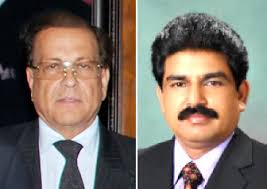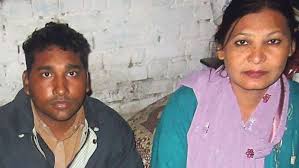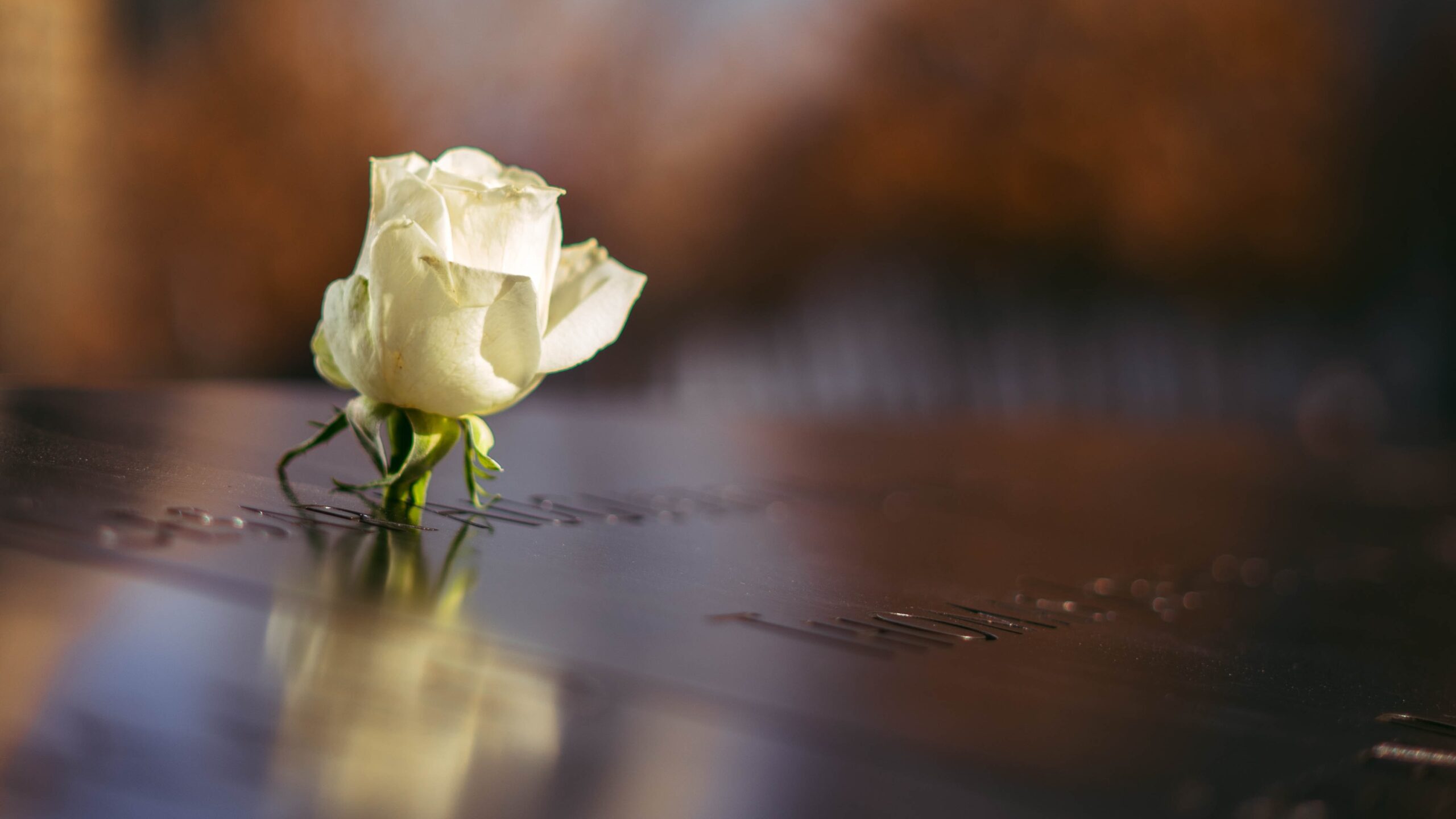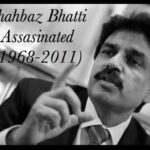Yesterday, March 2nd, was the ninth anniversary of the assassination of Pakistan’s Minister for Minorities, Shahbaz Bhatti. To mark his murder, and the failure to bring anyone to justice, Parliamentarians from both houses of the British Parliament, along with Christians and Muslims or Pakistan origin, met at Westminster under the auspices of the All- Party Group for Pakistani minorities.
The meeting was addressed by (Lord) David Alton, who hosted and chaired the event; by Jim Shannon MP, the co-chair of the APPG; Nasran Ghani MP; Assiya Nasir, a former Member of the Pakistan National Assembly and colleague of Shahbaz Bhatti; Morris Johns, the Secretariat to the APPG; John Pontifex of Aid the Church in Need and Ben Rogers, Vice Chair of the Conservative Party Human Rights Group and CSW ( both of whom worked with Shahbaz Bhatti); Dr.Peter David; Mr.Asif Mall; Dr.Nashafa Khiljee; Professor Javid Rehman of Brunel University;, and Ewelina Ochab, Co-founder of the Coalition for Genocide Response and Advocacy and Engagement Adviser: https://www.forbes.com/sites/ewelinaochab/2020/03/02/carrying-forward-shahbazbhattis–unfinished-business-to-protect-religious-minorities-in-pakistan/#66acf3434605
Ms.Ochab introduced the Declaration for Peaceful Coexistence of Religious Minorities in Pakistan – which was launched at the event – and Lord Alton, Jim Shannon MP, Brendan O’Hara MP and Lisa Cameron MP, headed the list of signatories.
Declaration for Peaceful Coexistence of Religious Minorities in Pakistan
to mark the assassination of Shahbaz Bhatti and Salman Taseer, their friendship and love of Pakistan’s people, regardless of religion or social status and their belief in justice, the rule of law, human rights and democratic values.

We, the undersigned:
Recognising that everyone shall be granted the full protection of human rights, including the right to freedom of religion or belief in accordance with Article 18 of Universal Declaration of Human Rights (UDHR) (1948) and Article 18 of the International Covenant on Civil and Political Rights (ICCPR) (1966) and other human rights affirmed in the UDHR and the ICCPR; including rights of individuals belonging to minorities as provided by Article 27 of the ICCPR;
Recognising that religious minorities may face challenges in the enjoyment of their human rights, whether in the form of marginalisation, discriminatory practices, policies, and laws, persecution or acts of violence on their person or their places of worship;
Emphasising that a violation of the right to freedom or religion of belief has a profound effect on the enjoyment of all human rights, including but not limited to the right to life, the right to freedom from torture and other inhuman and degrading treatment or punishment;
Emphasising the need to affirm human dignity for everyone, everywhere and so take proactive steps to protect those in vulnerable situations, including, as derived from their minority groups status;
Call upon the Pakistan State to:
Review, with the commitment to, stopping their use and ceasing, any practices, policies, laws that enable, facilitate or result in marginalisation, discrimination, persecution of or violence against members of religious minority groups;
Review, with the view of stopping their use and ceasing, any practices, policies, laws that fall short of the international human rights standards, that Pakistan is bound to adhere to, including, but not limited to, in Article 18 of the UDHR, Articles 18 and 27 of the ICCPR and other human rights affected; and ensure that the aforementioned international human rights standards are affirmed, fully protected, and rigorously implemented and enforced;
Review, with the view of reforming the blasphemy laws, identifying the challenges of such laws and their abuse in vexatious disputes, the disproportionality of the death sentence, and their excessive use against members of religious minority groups.
Cease all acts of violence targeting members of religious minority communities on account of their faith and identify the shortfalls in the response, and introduce mechanisms to prevent all acts of violence;
Review, with the view of amending, the educational curriculum and remove all the elements of prejudice and bias in text materials on grounds of religion or belief and ensure formation of a tolerant and inclusive society;
Ensure that all acts of violence perpetrated against members of religious numeric minority groups are duly investigated and the perpetrators are brought to justice, and the victims are given adequate legal protection and effective redress;
Ensure that all cases of abductions, forced conversions and forced marriages (including child marriages) are investigated and the victim are provided adequate legal and effective redress;
Take proactive measures to accommodate and promote interfaith dialogue;
Take proactive measures to engage religious leaders in efforts to combat the practices of marginalisation, discrimination, persecution and violence against members of religious minorities, including by way of promoting positive narrative accommodating peaceful coexistence.
Establish an independent National Commission for Minorities, with the mandate of incorporating quasi-judicial and quasi-legislative functions to safeguard and protect the interests of religious minorities with complete financial and political independence.
Shahbaz Bhatti’s Unfinished Business
In his remarks to the commemorative event, David Alton said that if Pakistan’s authorities had failed to bring to justice the murderers of a government Minister what prospect of justice is there for people from beleaguered and persecuted minorities. He criticised the UK Home Office for not recognising the continuing attacks on minorities as persecution, but simply calling it discrimination.
He described conditions in detention centres, which he has visited in South East Asia, where “fleeing Christians and Ahmadis are kept in caged areas like wild animals”; he criticised the payment of over £340,000 in overseas aid to Pakistan, every day: “none of which gets into the ghettos where the minorities are forced to live in degrading conditions”; and he said that across the world “we must complete Shahbaz Bhatti’s unfinished work, inspired by his extraordinary example in meeting the challenges.”
He recalled the imprisonment of Asia Bibi and praised Pakistan’s highest judicial authorities for having put right “a travesty of justice” which had led to years of imprisonment and a death sentence. But he also said that Shagusta Kauser and her disabled husband continue to languish in prison and that Shagusta is incarcerated in Asia Bibi’s former cell in Multan. He called for her immediate release.


He quoted a response given over the weekend to the BBC by Asia Bibi
She was asked about “ Shahbaz Bhatti and Salman Taseer, who were both murdered for supporting you. Did you find out about that in jail?”
Her response was:
“Yes I found out when I was in jail. I cried a lot. I cried for more than a week for them. Even today, my heart is full of sadness for them and I miss them. I feel they’re not dead. They’re still alive, in God’s kingdom. I felt like all my hopes had gone, no one was left to work for me. But I made my heart strong, I still miss them. And I cry for them. My heart aches for them. Because two people are no longer in this world. But I think they’re alive, they haven’t died.”

Lord Alton then said that the imprisonment of Asia Bibi and the deaths of Shahbaz Bhatti and Salman Taseer pointed to the need “to reform Pakistan’s Blasphemy Laws, inherited from the British – and used to target individuals, their families and their communities.”
He said:
In recent years, the world observed how Asia Bibi fought for justice in Pakistan. Accused of making blasphemous statements during an argument about drinking water from a well.
She was acquitted last year after spending eight years on death row. Several months later, she managed to leave Pakistan in pursuit of a safe haven. I pay great tribute to Canada for providing sanctuary – unlike the UK and other countries who shamefully turned their eyes away.
She endured years of struggle and threats made to her life. While her story is one that was ultimately successful, there are many more Asia Bibis in Pakistan, members of religious minorities who bravely stand up to laws and procedures that are designed to give them little if any redress.
Be clear, I do not blaspheme and I ardently dislike blasphemy. But Asia Bibi’s case portrays everything that is wrong with how Pakistan’s blasphemy Laws have been misused.
Apart from being subjective in nature, what is also glaring is that despite the fact that blasphemy laws tend to apply to all religions, they are being disproportionally and vexatiously used against religious minorities.
Public support for strict blasphemy laws in Pakistan is reportedly strong.
However, it is clear that those who are calling for strict blasphemy laws are unlikely to ever have to face the charges of blasphemy. The majority of those convicted under blasphemy laws are religious minorities, especially Ahmadiyya and Christian minorities.
This targeting of religious minorities illustrates how these laws are no longer fit for purpose and are not being used to prosecute genuine claims of blasphemy but are instead used to persecute religious minorities for daring to live in accordance with their religious beliefs.
Furthermore, blasphemy laws have often been used by groups of mobs to exact extrajudicial justice. Reports suggest that, since 1990, at least 65 people have been killed in Pakistan over claims of blasphemy. For example, in 2014, a Christian couple in Kot Radha Kishan was beaten to death and burnt by a crowd of over a thousand of people for allegedly desecrating the holy Quran.
It was reported that the legs of the victims were broken prior to burning so that they would not be able to escape the fire.
If Asia Bibi had stayed in Pakistan, there would have undoubtedly been a serious risk that she would have become one more grim statistics.
And, of course, anyone who tries to help those charged with blasphemy, have also been subjected to threats and violence. As we know, Shahbaz Bhatti was killed in an ambush for attempting to reform the blasphemy law. The house of Shahbaz Gormani, a lawyer defending a university lecturer accused of blasphemy Junaid Hafeez, was raided by gunmen on motorcycles warning him to withdraw from the case. The lawyer of Asia Bibi, Saif-ul-Mulook, had to flee the country in fear of his life.
I am appalled that Facebook gave access to the Facebook account of a man being investigated for alleged blasphemy and this has led to him being given a death sentence. I wrote to Sir Nick Clegg about this on Christmas Eve. I have still not had the courtesy of a reply. Facebook, like everyone else, has a duty to protect its users not to being come collaborators in persecution.
As we approach International Women’s Day I also want to say a word or two about the situation of Women and Girls in Pakistan
Blasphemy laws are not the only issue facing religious minorities in Pakistan.
Among others, it is crucial to shed light on the issue of minority girls and young women being abducted, forcibly converted and forcibly married to Muslim men.
For example, a 16-year-old girl Christian girl, Sheeza Riasat, was reportedly abducted from her family home, by armed men, at the age of just 15.
She was forcibly coercively converted and forcibly married to a Muslim man in February 2019. While Sheeza was under the age of 16 when she was forcibly married, her age on the marriage certificate was reportedly indicated as 18. Revealingly, the marriage certificate is dated one day before her abduction. Although her family reported the abduction and forced marriage to the police, the police have inextricably dropped the case. As a result, the family have taken the case to court. Sheeza’s parents are fighting for her return. The case is expected to be heard soon.
Then there is the case of Laveeza Bibi who was 23 when she was abducted from her home by two armed men. She was forced to convert to Islam and marry one of her abductors. It was reported that despite her family’s attempts to report her abduction, the police were reluctant to accept and investigate the case.
A Christian girl, Mehwish, was kidnapped when she was just 14. It was reported that the police have not taken any steps to investigate her case or made any attempt to rescue her.
Two teenage girls, Farzana and Sehrish, aged 14 and 16 respectively, were abducted and subjected to gang rape perpetrated by three men. Despite one of the perpetrators being apprehended, the family was pressured to settle the case outside of court.
Similarly, the case of Maria Sarfraz, an 11-year-old girl abducted and gang-raped for three days, was forcibly settled outside of court.
The list goes on. Keep it in mind as we prepare to mark International Women’s Day.
Indeed, according to the Movement for Solidarity and Peace (MSP), a human rights organization located in Pakistan, around 1,000 Christian and Hindu girls and women are kidnapped each year, forced to convert and to marry Muslim men. The victims are usually girls and women between the ages of 12 and 25. Despite these already shocking statistics, the number of victims may be even higher as many cases remain unreported.
These are just two but severe challenges faced by religious minorities in Pakistan. Both need to be urgently addressed.
This is also why we need to double or triple our efforts to assist religious minorities in Pakistan and ensure that their human dignity and human rights are adequately affirmed and protected.
The Declaration for peaceful coexistence of religious minorities in Pakistan aims precisely that. We must make Shahbaz Bhatti’s’ fight our fight and, in recalling his memory, the greatest tribute we can pay him is to work for Pakistan’s beleaguered minorities.
Remarks by John Pontifex of Aid to the Church in need. Click here:
John Ppontifex Pakistan_Bhatti
You can listen to the voice and words of the late Shahbaz Bhatti at this link.
https://www.youtube.com/watch?v=aYhPP3VNymk
Also See:
https://www.davidalton.net/2019/06/06/11203/
https://twitter.com/benedictrogers/status/1234636085717848068?s=20
https://twitter.com/benedictrogers/status/1234396358142021633?s=20
.
ASIA/PAKISTAN – Appeal of religious leaders to the State and the international community: to guarantee justice for the murder of Saleem Masih
Lahore (Agenia Fides) – Outrage and condemnation for “a barbaric, inhuman and atrocious crime”; request to provincial and federal governments to “punish the killers firmly”; appeal to international organizations to promote the protection of religious minorities in India and Pakistan: requested by the National Commission for Interreligious Dialogue and Ecumenism (NCIDE) and the Church of Pakistan (part of the Anglican Communion) stigmatizing together the brutal murder of Saleem Masih, a young Christian killed in the Kasur district, in Punjab in recent days.
As communicated to Agenzia Fides, several Christian and Muslim religious leaders met yesterday in Lahore, addressing the issue and discussing what to do. The meeting was chaired by Mgr. Azad Marshal, Anglican bishop of the Diocese of Rawalpindi, in the Church of Pakistan, in the presence, among others, of Fr. Francis Nadeem OFM Cap, NCIDE Executive Secretary, Fr. Emmanuel Khokhar and Islamic leader Muhammad Asim Makhdoom. All those present “expressed deep regret” for the events that had taken place, a sign of widespread intolerance towards Christians, and also for the behavior of the police who did not take harsher measures by stopping and immediately releasing the perpetrators of the crime.
The assembly of religious leaders expressed pain and bitterness for the persecution suffered by Christians in Paskistan, also recalling that suffered by the Muslims of India, inviting, for both scenarios, to avoid any discriminatory law and behavior, respecting the “principle of citizenship”.
As reported to Fides, the assembly made the following decisions: launch an appeal to world human rights organizations “to take immediate action to stop violence against Muslims in India and against religious minorities in Pakistan”; launch an appeal to the government of Pakistan so that, “instead of proclaiming empty slogans, take practical measures to avoid this type of incident in the future”, bringing the perpetrators of Saleem Masih’s murder to justice and actively promoting interreligious harmony in Pakistan.
Saleem Masih, 22, a Christian farmer, was brutally tortured by local landowners in Kasur on charges of “polluting” a well. On February 25, Saleem had finished working in the fields in the village of Baguyana and while he was washing himself a group of Muslim men, including Sher Dogar, Iqbal, Altaf, Jabbar and Haji Muhammad, started beating him. They cursed and beat him, calling him a “filthy Christian”. They tied his hands and feet, and continued to torture him with sticks and a red-hot iron rod, causing him multiple fractures and internal and external injuries, all over his body. The attackers kept him for about three days before returning the body to his family. The young man, who was taken to hospital in Lahore on February 27, died due to his injuries on February 28. (PA) (Agenzia Fides, 5/3/2020)



